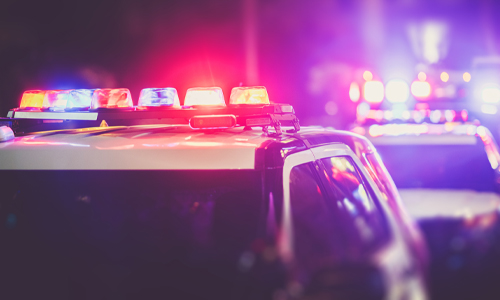Planning For New Year’s Eve and Avoiding OUI Charges
The pandemic has made 2020 a difficult year. Most of us are greatly looking forward to 2021, and hopefully a quick end to the pandemic and a complete re-opening of our stores, restaurants, and economy.

With the difficult times that we’ve been facing, it may be tempting to over-celebrate this New Year’s Eve with a little too much drinking and festivities. As a Tewksbury and Lowell OUI lawyer, I urge people who will be celebrating away from their home on New Year’s Eve to carefully plan their evening, including where they will be going and how they will return home. Here are a few aspects to consider, both for this year and future years:
- Make a Plan. In non-pandemic years, many people often went to more than one place to celebrate, perhaps to multiple bars and/or private parties. If this may be in your plans, determine how you are going to get to your first stop, as well as how you will get to the next destinations on your evening.
- If you’re going to be drinking, consider not driving at all. One of the primary reasons that OUI charges occur on New Year’s Eve is that a person will drive to a party with the intent of not drinking (or not drinking much), and then get swept up in a good time and end up drinking too much. Then, after becoming intoxicated, they must make the critical decision of what to do about their car and returning home. Will their car get towed if they leave it where they parked? Are they sober enough to safely drive home? Who can safely drive them home?
The easiest and safest way to avoid having to deal with car issues in this situation is simply plan on using a taxi or rideshare service both to and from a party or bar.
- If you’re wondering if you might be too intoxicated, you probably are. Don’t take the chance of driving if you’ve been drinking – it’s not worth it. Everyone knows the downside of OUI charges – attorney’s fees, possible revocation of a driver’s license, having a record, and potentially causing a serious accident. All these possibilities can be avoided for perhaps the $25 cost of a rideshare.
- Don’t choose to “sleep it off” in your car by starting your car, or even putting the key in the ignition of your car, even if it’s in a parking lot or you don’t intend to drive. In Massachusetts, if you’re in your car and inebriated and the car key is in the ignition, you can be charged with OUI, even though the car is not being driven. This fact is counterintuitive, since it is certainly safer if an inebriated person chooses to stay in their car and sleep it off while keeping warm with car heater running rather than driving home; but this is the law in Massachusetts.
What Should You Do if You Are Stopped for a Potential OUI?
Obey the police.
If you get stopped, you do not have to answer any questions that may incriminate you, such as answering questions about how much alcohol you may have consumed. You also may withhold consent to a voluntary search of your car (however, if you’re being arrested, the police can search your car).
Do not argue with the police if they choose to charge you with OUI, or if they do search your car. The time to contest charges – as well as matters such as whether the police had a good faith basis for stopping you – will be later. This is the role of your attorney. Those who argue with the police or refuse a pat down or engage in similar confrontations will only make their case worse by additionally getting a resisting arrest charge.
Remember – if you’re stopped by the police, you’ll likely be recorded by video. Video can help or hurt your case, so act responsibly.
What Should Not Be Done After an OUI Charge?
Discussing the circumstances of an arrest on social media.
Many people believe that because they may have limited their social media postings to close friends and family, the prosecution will never see their postings. This is not the case.
Prosecutors can (and often do) use social media like Facebook to find out more about a person charged with a crime. Thus making a posting like “Can’t believe I finished a full 12-pack before driving home last night” is unlikely to help a person’s case.
Instead of making social media postings concerning an arrest, assume that everything that you post on social media may be publicly known and used against you in court.
How a Massachusetts OUI Lawyer Can Help
As an OUI lawyer, I represent those in Tewksbury, Lowell, and the surrounding communities charged with impaired driving. I am tenacious about seeking to preserve the legal innocence of clients against OUI and other driving charges.
I offer a free consultation to so that those charged with OUI or other criminal offenses can learn about how I can help. If you’ve been charged with OUI, I would invite you to call me to take advantage of this free consultation.
I and my firm accept OUI and criminal defense cases on a fixed fee basis. This means that you’ll know at the outset exactly how much your legal fees will be.

